When it comes to getting your cholesterol checked, there’s a bit of prep involved—mainly, making sure you’re on an empty stomach. Docs say fasting for 8 to 12 hours before they take your blood sample gives them the clearest picture of what’s going on with your cholesterol levels, without any snacks or drinks muddying the waters. It might seem like a pain, but think of it as giving your body a clean slate for testing. Plus, nobody wants to get their heart health info skewed by yesterday’s latte!

Understanding Cholesterol Tests
So, you’re gearing up to test for cholesterol, right? Here’s the lowdown: doctors whip out a set of tests called a lipid panel to see the full picture of fats in your blood, including cholesterol. These tests dive into your total cholesterol, the not-so-great LDL (low-density lipoproteins), the superhero HDL (high-density lipoproteins), and triglycerides. Getting the skinny on these numbers is key because they play a big role in your risk of cardiovascular diseases. LDL is the rascal here, increasing plaque in your arteries, while high triglyceride levels wave red flags for vascular disease too.
What is a Cholesterol and Lipid Blood Test?
A cholesterol and lipid blood test is like your body’s financial audit but for fats and cholesterol in your blood. This test checks out the levels of cholesterol, both the good guys (HDL) and the bad boys (LDL), plus triglycerides, another type of fat. Why bother with this test? Well, high LDL levels can lead to buildup in your blood vessels, hiking up your risk of heart trouble. But, high HDL is your friend, helping to clear excess cholesterol out of your club (body). And let’s not forget triglycerides; these can also up your risk of heart and blood vessel diseases.
The Importance of Fasting Before a Cholesterol Test
Old school thought was that not eating for 8 to 12 hours before a cholesterol test was the golden rule. This fasting window was believed to give docs the clearest view of your total cholesterol and the different types, like harmful LDL and protective HDL, not to mention triglycerides. Yet, we’re learning that it’s not the full story. See, most of us aren’t fasting all day, every day, so how we test might not truly reflect our “normal” levels. Plus, let’s be honest, fasting is a hassle for everyone involved.
How Fasting Affects Blood Cholesterol Levels
Skipping your meals before a cholesterol test does more than quiet your grumbling stomach—it can influence your test outcomes, especially when eyeing the risk for heart disease. Here’s the scoop: fasting helps provide a clear baseline to measure your cholesterol, without recent eats skewing the results. In simple terms, it’s like cleaning your windows before looking out; everything seems clearer without the finger smudges, giving a better view of your heart health status.
The Components of a Cholesterol Test
Diving into a cholesterol test is more than just a simple number game. It’s a deep dive into the fats cruising through your bloodstream. We’re talking about a comprehensive look at the various players—total cholesterol, HDL (the good), LDL (the not-so-good), and triglycerides—all of which play their own unique roles in your heart’s well-being. Each component gives your healthcare team clues on how to best support your ticker’s health.
HDL Cholesterol: The Good vs. The Bad
It’s a battle of the bands: HDL versus LDL. In the world of cholesterol, HDL cholesterol is like the superhero, swooping in to carry away excess cholesterol to where it can’t cause trouble in your blood vessels. On the flip side, LDL cholesterol is the villain, setting up camp in your arteries and inviting its friends to join, leading to plaque build-up. Understanding these dynamics is critical in managing and optimizing your heart health.
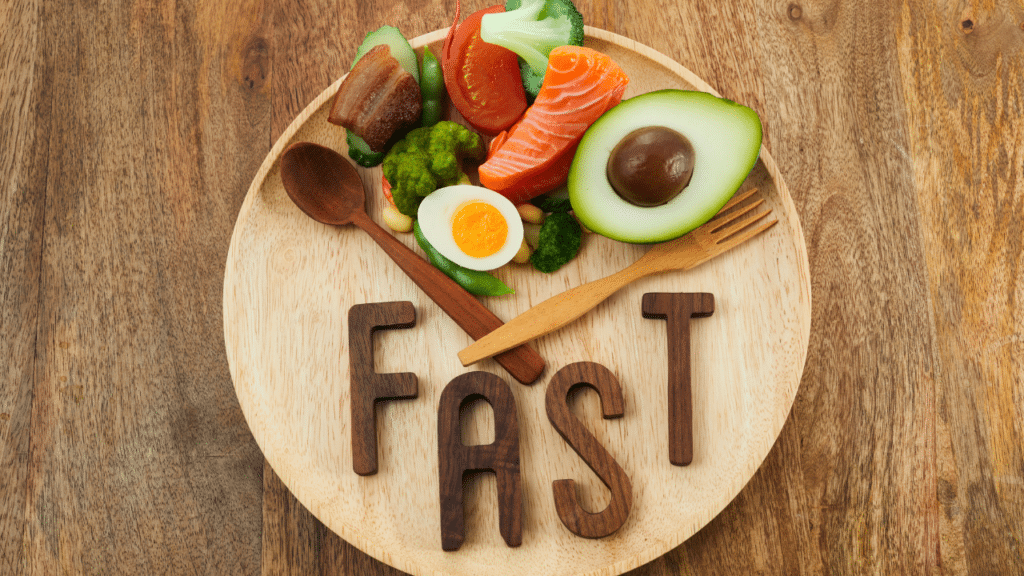
Preparing for Your Cholesterol Test
Getting ready for a cholesterol test is a bit like prepping for a big day. You want everything to go smoothly, so paying attention to how you fast, what you eat or drink, and even your stress levels can make a difference. It’s all about setting the stage for accurate results, so your health care team gets a clear picture of your heart health. Think of it as doing your homework before the big exam—the better prepared you are, the better the outcome.
How Long to Fast for Accurate Results
When it comes to cholesterol blood tests, there’s a magic number range for fasting: 8 to 12 hours. This overnight fast ensures that when you roll up to get your blood drawn, what the test sees is your cholesterol levels, not what you had for dinner. Stick to this fasting window to give your medical team the clearest lens into your heart health. And remember, while fasting might seem like a minor league play, it’s a major league move in the game of heart health diagnostics.
What You Can Eat and Drink Before a Cholesterol Test
Now, you might wonder if there’s any wiggle room in the fasting rules for a cholesterol test. Well, the truth is, not really. Once you’re in the fasting zone, water is your best bet—no sneaky snacks or sips of coffee. It’s all about keeping it clean to get those accurate results. The goal is to avoid anything that could throw a wrench into your cholesterol readings, ensuring you and your healthcare provider can map out the best path for your heart health.
The Night Before: Do’s and Don’ts
The night before your cholesterol test, think of it as the calm before the storm. It’s your chance to make sure your fasting starts off on the right foot. Do keep it simple with a calm evening and a normal dinner before your fasting window kicks in. Don’t go wild with a big feast or alcohol, as these could paint a misleading picture of your cholesterol levels. It’s about setting yourself up for a smooth test run.
Does Drinking Water Affect Your Results?
When you’re in the fasting league, staying hydrated with water is not only okay, but it’s also encouraged. Unlike coffee or juice, water doesn’t bring any baggage that could skew your cholesterol readings. No need to worry about LDL levels or risking your coronary health just because you needed to quench your thirst. In this case, water’s neutrality is your friend, helping keep your system clean for a clear snapshot of your cholesterol health.
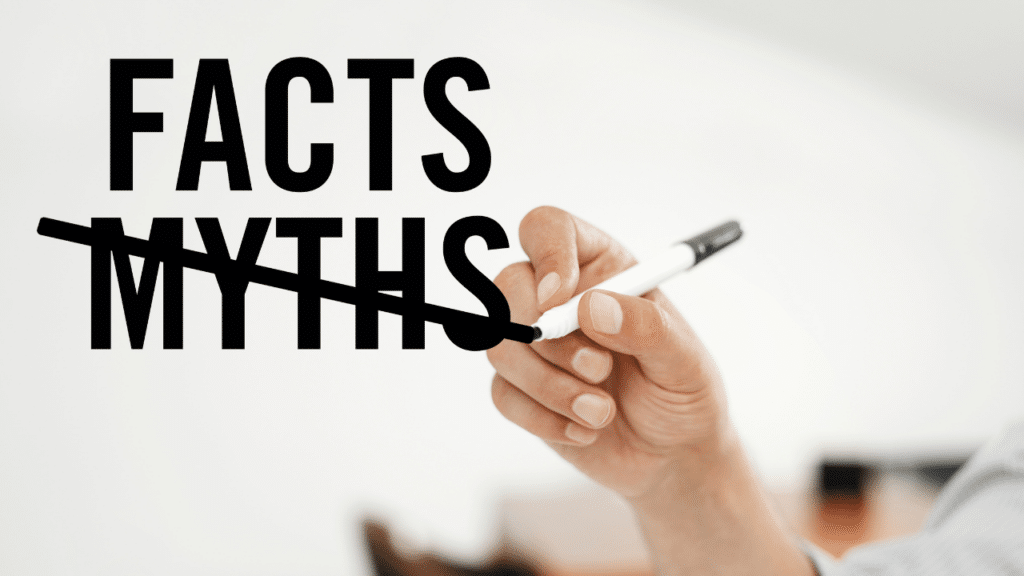
Debunking Myths and Common Questions
In the world of cholesterol testing, myths are as common as toast at breakfast. It’s crucial to sift through the noise to get to the truth. Whether it’s questions about the fasting process, the impact of your diet on test results, or even if you can cheat a cholesterol test (spoiler: you can’t), getting straight answers helps you navigate the path to understanding your heart health better. Let’s bust those myths and get down to the facts for the sake of your ticker.
Can You Cheat a Cholesterol Test?
Trying to cheat a cholesterol test is like trying to sneak past your mom when you’ve stayed out too late—pretty much impossible. The truth is, your cholesterol levels are a reflection of your health over time, not just what you did or didn’t eat the day before the test. So, while fasting properly and following guidelines is crucial for accurate results, remember: there’s no substitute for maintaining a heart-healthy lifestyle all year round.
The Impact of Diet on Test Results
Your diet plays a bigger role in your cholesterol test results than you might think. While a single meal won’t drastically change your cholesterol levels overnight, your eating habits over time can significantly influence those numbers. Foods rich in saturated fats and trans fats can raise your LDL (bad cholesterol), while foods packed with fiber and good fats can help boost your HDL (good cholesterol). In the end, what you eat shapes the risk for heart disease, making diet an essential piece of the heart health puzzle.
Foods to Lower Cholesterol Before Your Test
Now, let’s get down to the nitty-gritty: chowing down on the right grub can nudge those cholesterol numbers in the friendlier direction. Foods packed with soluble fiber, like oats and beans, are like your heart’s pals, helping keep that cholesterol in check. Don’t forget your fatty fish, such as salmon and mackerel. These swimmers are rich in omega-3s, which are pretty slick at lowering levels of triglycerides and giving a little boost to your HDL (the good guy in the cholesterol world). Toss in a handful of nuts, and you’re not just snacking; you’re snacking with a purpose.
Foods to Avoid to Ensure Accurate Test Results
On the flip side, some foods act more like frenemies when it comes to your cholesterol test. You might want to give a cold shoulder to saturated fats found in red meat and dairy products. These can send your LDL (the not-so-good cholesterol) through the roof faster than an elevator with a busted brake. While you’re at it, wave goodbye to trans fats, those sneaky devils hiding in processed foods. They’re no good for your cholesterol levels and, frankly, they don’t do your test any favors either. Stick to this rule of thumb: if it’s fried or fast food, it’s likely a no-go for accurate test prepping.
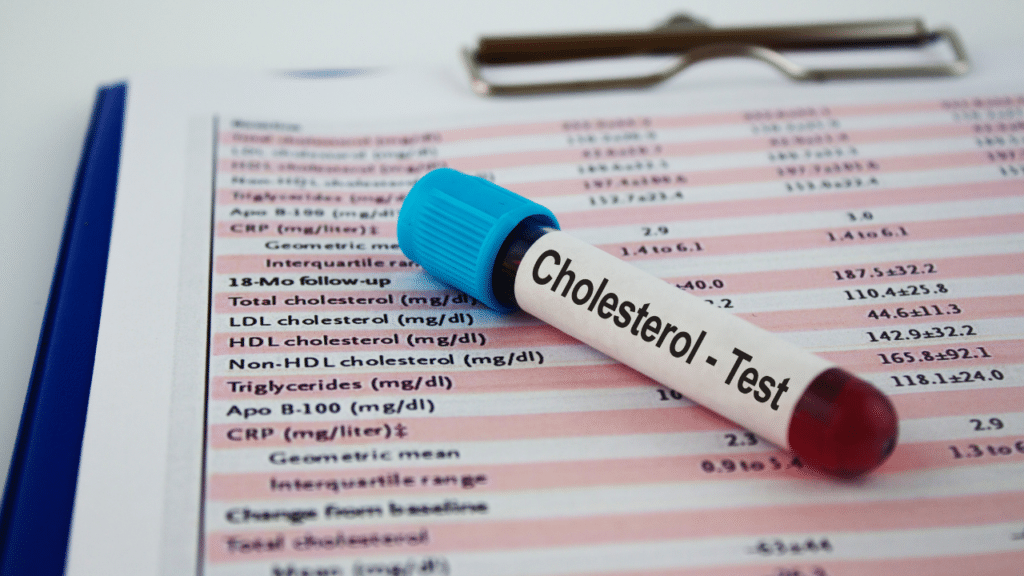
The Evolution of Cholesterol Testing
Cholesterol testing has been on quite the journey, evolving from a simple snapshot of your blood fats to a sophisticated panel giving the lowdown on your heart health. Way back, a cholesterol test was like checking the oil in your car; you wanted to know if you were running “clean” or if there was trouble brewing. Over the years, as docs got hip to the nuances of heart health, they began to dig deeper, examining not just the total cholesterol but breaking it down to the good, the bad, and the downright ugly. Each test brings us closer to understanding the sneakier aspects of heart disease, guiding us through the maze of dietary do’s and don’ts to keep our ticker ticking smoothly.
From Mandatory Fasting to Potential Changes
The script on fasting before a cholesterol test might be getting a rewrite. Traditionally, doctors would tell you to skip the grub for a solid 12 hours before testing. The thinking was, food in your system could muddy the waters, making it tricky to measure your true lipid levels. But here’s a twist: research suggests that chowing down might not be the villain we once thought. In fact, lipid levels post-meal could provide an even clearer picture of heart attack and stroke risk, dialing in on the risk of cardiovascular disease with more precision than fasting numbers alone. This shift in perspective could mean a future where fasting before a test becomes a thing of the past, making the whole ordeal a tad more bearable.

Farewell to Fasting? The Future of Cholesterol Testing
It looks like the horizon of cholesterol testing is shimmering with the promise of change. Could we be waving goodbye to the old fasting rule? It’s possible. As studies underline the importance of lipid levels throughout the day, not just in a fasting state, we’re seeing a new chapter unfold. This approach not only reflects our real-life eating patterns but also fine-tunes the process, making it more convenient for everyone involved. So, as we step forward, the future of cholesterol testing could very well leave fasting in the rearview mirror, focusing instead on a more realistic snapshot of our lipid levels. If you’re curious or ready to dive in, remember, you can always hit up Walk-In Lab to easily order a test online, swing by a local lab, and get your results without all the fuss.
High Lipoprotein(a) and Heart Attack Risk Even in Healthy People
Did you ever think a wisp of something called Lipoprotein(a) could stir up trouble? Sounds like a character out of a science fiction novel, doesn’t it? But here’s the deal: even for folks who seem fit as a fiddle, high levels of this sneaky particle can spell bad news for the heart. It’s kind of like that quiet kid in class who ends up surprising everyone. Except, in this instance, the surprise isn’t something to cheer about. It raises the risk of heart attacks, and believe it or not, diet or exercise might not always keep it in check. So, if your blood test throws this curveball, it’s a heads-up to have a chat with your doctor about what this means for your ticker.
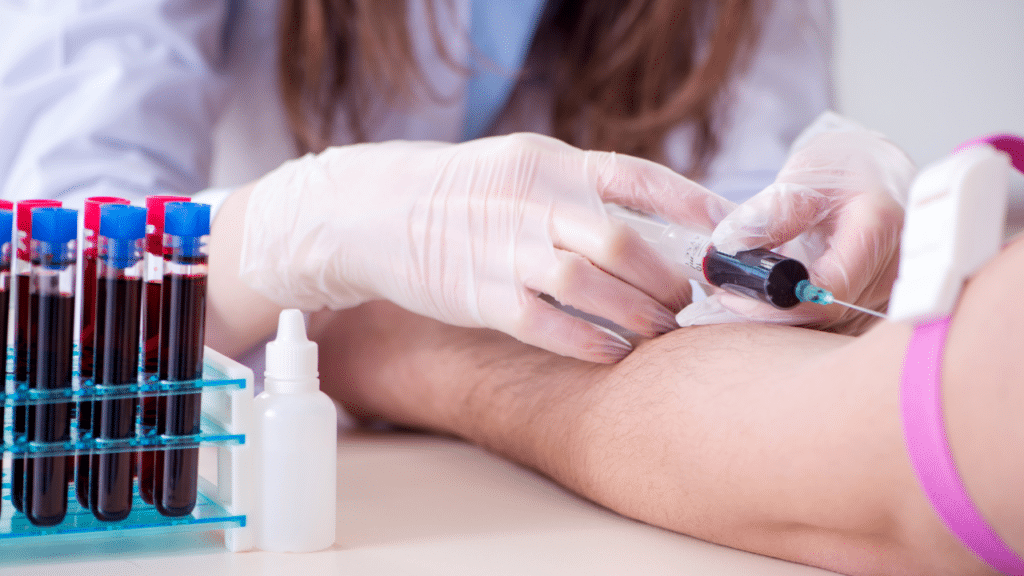
After the Cholesterol Test
Once the needlework is done and your blood’s been taken out for a spin, you’re probably wondering, “What now?” Well, hold onto your hat, because understanding the results is the next big adventure. Cholesterol isn’t just about one number but a whole lineup that tells the story of what’s going on inside you. It’s like looking at a baseball team’s stats, not just one player’s home runs. And if things look a bit off, it’s time to work on a game plan with your doc to swing things back in balance.
Understanding Your Results
When you get your results, it might feel like you’re trying to decipher hieroglyphics. Numbers for this, levels for that—it’s a bunch to take in. Essentially, your doctor’s gonna look at your lipid profile test, a fancy term meaning they’re checking out the fats in your blood. They’re sizing up the good, the bad, and the triglycerides. And it’s not just about one magic number. They’re piecing together your whole health puzzle—age, blood pressure, the works—to see where you stand with heart disease risk. It’s kinda like getting your report card and then figuring out if you need to hit the books harder.
Next Steps Following High Cholesterol Findings
If that cholesterol test comes back with numbers higher than a skyscraper, don’t hit the panic button just yet. Your doctor’s got a road map of strategies, and it ain’t all about popping pills. Sure, there may be talk of cholesterol-lowering medicine if you’re in the red zone with heart disease risk. But for many, the first step is shaking up the ol’ lifestyle—more greens on your plate and putting those sneakers to work. Think of it as getting a tune-up, not just slapping on a spare tire and hoping for the best.
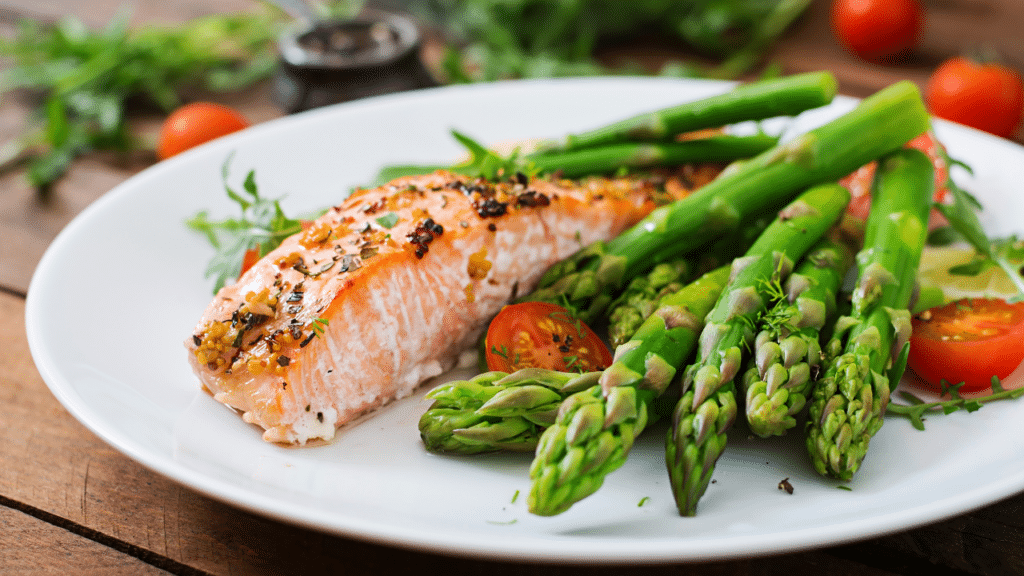
Lifestyle and Diet
Let’s face it, changing up our grub and moving more might just be the ticket to keeping our heart ticking like a well-oiled machine. It’s not just about cutting out all the fun stuff; it’s about finding a balance that keeps the engines running smoothly. You could say it’s a bit like being the DJ of your own health, mixing in the good stuff with the occasional treat.
Foods That Naturally Lower Cholesterol
If you think eating to lower your cholesterol means saying goodbye to all things delicious, think again, my friend. Mother Nature’s kitchen is stocked with goodies that can help keep your cholesterol in check. Oats for breakfast, almonds for a snack, and salmon for dinner—sounds like a menu for champions, right? This isn’t about munching on cardboard; it’s about enjoying the bounty that helps your heart stay in the rhythm.
The Role of the Mediterranean Diet in Cholesterol Management
Ever wonder why folks around the Mediterranean seem to dance through life with a smile? It might just be their diet. Rich in olives, nuts, fruits, and fishes, this lifestyle choice is like a love letter to your heart. It’s about savoring meals that not only taste good but do good for your insides, too. So, before you think managing cholesterol is all doom and gloom, remember—it can be as delightful as a Mediterranean feast.

Addressing Heart Health
Keeping your ticker in top shape is like taking care of a classic car. It’s all about regular maintenance and the right fuel. Getting your cholesterol numbers to play nice is a big part of that. It’s not just for the here and now; it’s about cruising smoothly into the future. Because, let’s face it, we all want to be revving our engines and enjoying the ride for as long as possible.
The Connection Between Cholesterol and Heart Attack Risk
So, here’s the skinny: cholesterol and heart attacks are kind of like frenemies. Too much of the bad stuff (LDL) and not enough of the good stuff (HDL) can lead to trouble on the inside. It’s like having a block party in your arteries, and not the fun kind. Keeping these levels in harmony is key to keeping the party vibes positive and your heart dancing to the beat of health.

Preventive Measures Beyond Diet and Fasting
While chowing down on greens and cutting back on the midnight snacks is crucial, there’s more to the heart health equation. Your doc might throw in a blood test here and a blood pressure check there, all in the name of keeping you ticking like a fine clock. It’s about the whole picture, not just the cholesterol snapshot. And, surprise surprise, that might even mean enjoying your food and life without having to always say “no.” It’s about smart choices, not just strict rules.
FAQs and Misconceptions
Let’s clear the air on some things, shall we? There’s a lot of chatter out there about cholesterol tests—do you need to fast, can you drink water, is it okay to eat a burger the night before? The truth is, it’s not all black and white. The answers can vary, but the goal remains the same: getting a clear picture of your heart health so you can keep beating your best drum.
Do You Need to Fast for All Types of Cholesterol Tests?
Here’s the scoop: Not all cholesterol checks require you to starve yourself beforehand. Yep, you heard that right. The times, they are a-changing, and so are the rules for testing. It’s like trying to catch a fish; sometimes you need a net, and other times, you just need a line. The key is knowing what test you’re fishing for and preparing accordingly. Always best to check with your doc on what’s needed for your particular health snapshot.
The Truth About Water Intake and Cholesterol Test Results
Worried that drinking water before your test will muddle the results? Fear not. Hydrating isn’t going to throw your numbers into a tailspin. It’s more about what you’re munching on rather than sipping. So, keep the water flowing—it’s all good. It’s like keeping the garden watered; it doesn’t mess with the blooms, only helps things grow right. Always check the specifics and recommendations on fasting before testing.
Making Sense of It All: A Comprehensive Guide to Cholesterol Tests
By now, you might be feeling like you’ve just been handed the map to a treasure hunt—cholesterol style. It’s a lot to digest, but here’s the thing: understanding your cholesterol test is a giant step towards heart health victory. Whether it’s deciphering numbers or figuring out the next steps, it’s all part of navigating the high seas of health. So, grab your compass, set sail, and remember, the journey to better health is always worth the trek.
From Preparation to Understanding Results
From fasting (or not) to analyzing the results, gearing up for a cholesterol test is like prepping for an epic adventure. It’s not just about hitting pause on the snacks; it’s understanding the lay of the land once you’ve crossed the finish line. Each number tells a story, and each story guides you on your health journey. It’s about piecing together the puzzle of your heart health, one test, one number, one decision at a time. And hey, if you’re curious about getting a cholesterol blood test easily, popping over to Walk-In Lab might just be your golden ticket. Test at a local lab and snag your results quick, all without breaking a sweat.
How This Information Impacts Your Heart Health Journey
Arming yourself with knowledge about fasting and cholesterol tests is like finding a secret map to navigate the tricky waters of heart health. It’s not just about skipping breakfast before your test. Understanding how this fasting game affects your results gives you a leg up, helping you to reduce risks of heart disease and other conditions. It’s like having a coach in your corner, offering strategies that could make all the difference.
Final Thoughts on Fasting Before Cholesterol Tests
Fasting before a cholesterol test has become a standard drill, almost like a ritual. But hey, it’s not just about following orders without knowing why. Getting why you’re doing it puts you in control. It helps ensure the numbers on your test reflect your real health story, not just what you ate last night. And remember, for a hassle-free experience getting that crucial cholesterol check, places like Walk-In Lab got your back—order online, get tested locally, and see your results online pronto.
Balancing Tradition and New Insights in Cholesterol Testing
In the world of cholesterol testing, it’s like we’re on a swing—balancing the old school need for fasting with fresh scoops that say it might not always be necessary. But don’t toss out fasting just yet. It still plays a crucial role in painting an accurate picture of our heart health. Staying tuned into both tradition and new insights ensures we’re doing what’s best for our ticker in the long haul.
The Role of Informed Decisions in Managing Your Health
Making informed decisions is like picking the right tool for the job; it just makes sense. Knowing the ins and outs of cholesterol testing, including the fasting part, makes us better equipped to take charge of our health. It’s about stacking the deck in our favor, so we can play our best hand against heart disease. And hey, having the right information might just be the ace up your sleeve.

